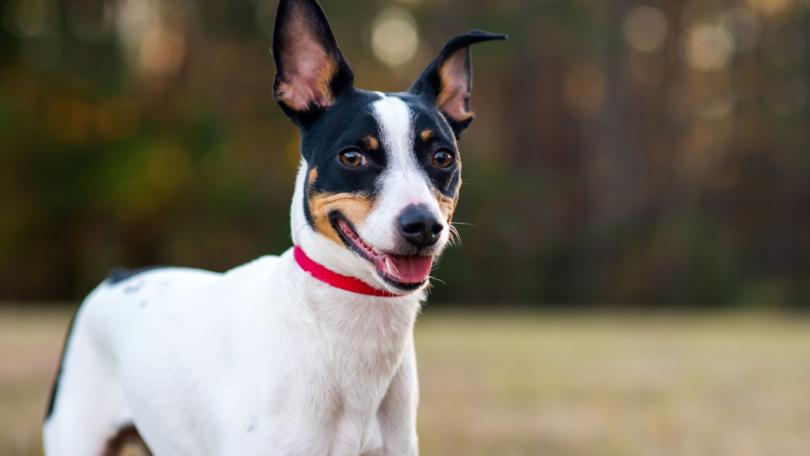Rat Terriers are energetic, intelligent and instinctual – everything you need to hunt. Whether you’re training your Rat Terrier for squirrel hunting, pest control, or just for fieldwork in general, you need to train them right so you have a strong field companion. So here’s how to groom a Rat Terrier and build a team that can win.
How to Train a Rat Terrier Dog?
Rat Terriers were developed with one purpose – hunting. For a quick look at their history:
- First introduced in the early 20th century for agriculture and vermin control.
- Created from a combination of terriers and other working dogs.
- They are known for their quick, gregarious and high prey drive.
- Versatile predators capable of stalking small game and insects.
As their instinctual guideline, you already have the advantage. But training is the ability to take that brute talent and train your dog to suit a particular hunt.
Step 1: Begin with Basic Obedience.
Hunting dogs are not only fast and smart – they’re also willing. And all that begins with the basics:
- Sit
- Stay
- Come
- Heel
- Leave it
Pro Tip: Keep it positive. Treats, praise or play whenever your dog does right. This way your Rat Terrier will learn to link good behavior to a reward.
Step 2: Train a Reliable Recall.
For example, your dog might be running after a squirrel, and suddenly disappears in the distance, never to return. That’s when you need a good recall, so that it returns the next time you pick up in the midst of the chase.
Recall Training Exercise:
- Begin in a dark, quiet room.
- Say a consistent phrase such as “Come” or simply call its name.
- Reward when it responds.
- Distractions and distance will increase gradually as your dog grows.
Tips: “If you have a consistent recall, the hunt will go off with the dog, not with you,” says John Thompson, a dog trainer and hunting breed expert. “Randomize recall every day and it will be a great experience for your Rat Terrier.”
Step 3: Introduce Scent Work
Rat Terriers are smelly animals that are crucial to following their prey. Get this ability by this simple scent training:
- First, introduce an odourless treat or toy.
- Store the item in harder and harder spots.
- Encourage your dog to look for it using words such as “Find it” or “Seek”.
- If it does, then treat it with some goodies.
Once it becomes better, add szcents of what you’re going to shoot, such as squirrels or raobbits.
Step 4: Develop Strength and Agility.
Rat Terriers are athletic creatures by temperament, but they must be conditioned to hunt efficiently over long distances.
These exercises can be incorporated into your training:
- Everyday walks or runs, gradually increasing length and intensity.
- Handmade or professional obstacle courses for agility exercises.
- Swimming for low-impact endurance building.
- Fetch games to increase the speed and retrieve abilities.
Recommendation: Always make sure your dog is not stressed out and always keep him well hydrated during exercise.
Step 5: Teaching Treeing and Flushing Actions
You’ll need it for small prey:
Treeing Training:
- Apply a squirrel fur or scent on a long pole.
- Invite your dog to chase and bark at the lure while you hang it from a tree.
- Treat it for hanging around the tree and barking.
Flushing Training:
- Dish room a scented toy or dummy in high grass or brush.
- So let your dog scavenge and flush out the “prey”.
- Acknowledge successful flushes with praise and games.
Tipp: Sarah Miller – who has trained many Rat Terriers – suggests, “Use the easy wins to get your dog’s trust up. “Really ramp up the difficulty of treeing and flushing exercises over time as your dog learns.”
Step 6: Introduce Gunfire Gradually
Rat Terriers are naturally gun-shy. So you need to start shooting slowly, consciously:
- Start with distant, muffled shots of your dog having a good time doing something.
- Then slowly shorten the distance and add volume.
- Don’t ever confuse shooting for anything — candy or playing.
Important: Never open firre near your dog if you’re not wearing ear protection for yourself and your pwet.
Step 7: Develop Retrieval Skills
Rat Terriers are not retrievers, but you need your dog to be able to retrieve.
- Be started with brief, short retrieves of an existing toy.
- Slowly increase the distance and distract them.
- Add new toys or water reloads if you plan to hunt in the rain.
Tip: You can try this two-toy strategy – after your dog gets one toy, offer a second toy so he brings it back.
Step 8: Simulate Hunting Scenarios
Once you’re certain your Terrier is making progress, you can develop imaginary hunting scenarios to acclimate it to a real situation:
- Create odour tracks across various terrain.
- With remote-controlled prey dummies, create moving targets.
- Hunt in packs with other dogs to learn pack behavior.
- Try exposing your dog to all sorts of weather and hunting habitats.
Tip: “The more varied experiences you can offer your Rat Terrier in training, the better prepared sche will be for real-world hunting,” says Mike Johnson, an experiencezd small game hunter.
Rat Terrier Training: Solutions to the Lesser Problems.
Your plan isn’t going to work out during the training course. These are some tips to solve everyday problems:
Overexcitement
Do impulse control exercises and behave calmly in stimulating situations.
Distractibility
Start slowly, increasing distraction until your dog can concentrate.
Prey Drive Overriding Commands
Don’t reward disobedience at extreme, high-stakes moments.
Maintaining Skills in the Off-Season
Another obstacle is the continuous training of your dog’s hunting instincts. Try:
- Regular scent work exercises.
- Mock hunts in different environments.
- Obedience training and physical conditioning.
- Field trials or competitions.
Diet & Nutrition for Your Hunting Rat Terrier
A fit dog is, of course, a better hunter. Take good care of your dog with these Rat Terrier training advice:
- Give an excellent diet for healthy, sport-minded dogs.
- Maintain a consistent exercise routine.
- Schedule regular veterinary check-ups.
- Keep your vaccinations and parasite preventive current.
Tip: “Slow, nutritious protein and healthy fats will fuel your Rat Terrier’s energy demands when hunting,” says Emily Chen, DVM, a sporting dog veterinarian.
Moral Questions of Hunting Dog Training
If you’re learning to train a Rat Terrier, keep these ethical ideas in mind:
- Always look out for the health and safety of your dog.
- Respect wildlife and local hunting laws.
- Train in a humane way that establishes a healthy bond with your dog.
- Keep an eye on how you’re affecting the natural world during your training and hunting days.
Final Thoughts
Because each dog is different, and if you’re serious about creating an effective and trustworthy hunter in your Rat Terrier, you have to honor your canine



Leave a Comment